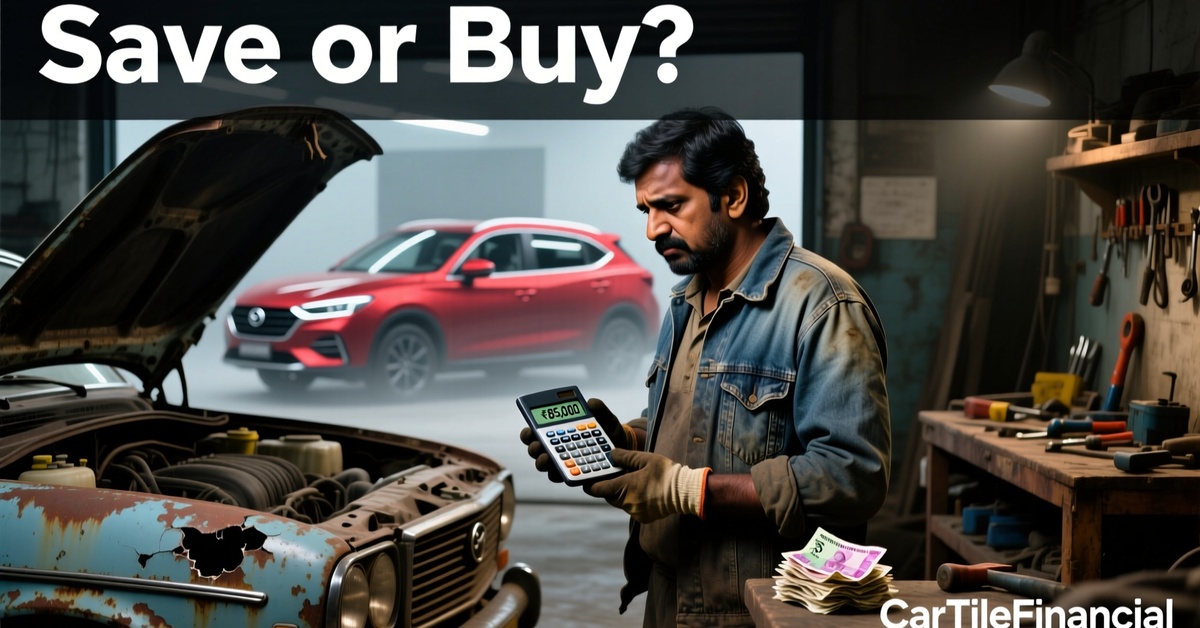Should you fix your old car or buy new? This question hits many wallets today. Experts now weigh in on this big decision. They see big shifts in the car market right now.
Used car prices are finally dropping. They hit a peak in 2022. New car options are also growing. Dealerships have more cars in stock. This gives you more choices than before. Also, expect more deals and incentives on new cars. This is a recent change.
Interest rates for car loans remain high. This is still a major factor. Buying a car involves big money. You must think smart.
Navigating Today’s Car Market Choices
Today’s car market offers fresh challenges. Used car prices are now falling. This is good news for many buyers. New car inventory is also up. This means more cars on dealership lots.
However, new car prices stay high. The average new car costs around $47,000. Loan interest rates are often 7% or more. This makes a new car a huge investment. You need to consider all costs.
Many people keep their cars longer. The average car age is now 12.5 years. This is a record high. Fixing your current car often makes sense. You avoid a new loan. You know your car’s history too.
But old cars need more repairs. These costs can add up fast. Some repairs are very expensive. Is it worth the cost? This is your key question.
Experts like Greg McBride from Bankrate offer advice. Jessica Caldwell from Edmunds also shares insights. They highlight the changing market. Rising inventory helps you. Falling used car prices also help.
Think about the total cost. This includes fuel, insurance, and maintenance. Don’t just look at the price tag. Your budget is very important.
Weighing Repair Costs Against New Car Payments
You need to compare some numbers. Get repair estimates for your old car. Then, look at a new car’s monthly payment. Add potential interest. Include higher insurance costs too. This helps you see the true cost.
Sometimes a big repair bill comes. A new engine might cost $5,000 to $10,000. A new car payment might be $600 a month. Over a year, that’s $7,200. Is the repair less than a year of new car payments?
New cars offer benefits. They have warranties. This saves you on early repairs. They also feature new technology. Fuel economy can be better too. But new cars lose value quickly. This is called depreciation.
Used cars have lower prices. Their value drops slower. But used cars may have no warranty. Unexpected repairs can happen. This is a risk you take.
Consider car reliability ratings. Websites like Consumer Reports show which cars last. This helps you choose wisely. Check car reliability guides before buying.
Think about your daily driving. How much do you really drive? What kind of car fits your life? A small car costs less to run. A large SUV costs more.
Making Your Smartest Car Decision Today
Deciding between fixing or buying depends on you. Your financial situation plays a big part. Your car needs are also important. The market changes constantly. Staying informed helps you save money.
Here are key steps for you today:
- Assess your budget: Know what you can truly afford monthly.
- Get repair quotes: Find out the real cost to fix your old car.
- Research new car prices: Look at total loan costs, including interest.
- Consider total ownership costs: Factor in insurance, fuel, and upkeep.
- Shop for financing: Always compare loan rates from different lenders.
- Check current incentives: New car deals are making a comeback.
Today, new car inventories are better. Used car prices are also easing. This is good for buyers. But high interest rates remain a hurdle. You can find more details on current trends. Learn about new car price trends from early 2024.
Do your homework now. Run all the numbers. Choose what truly works best for your wallet. It’s your money. Make it count.










